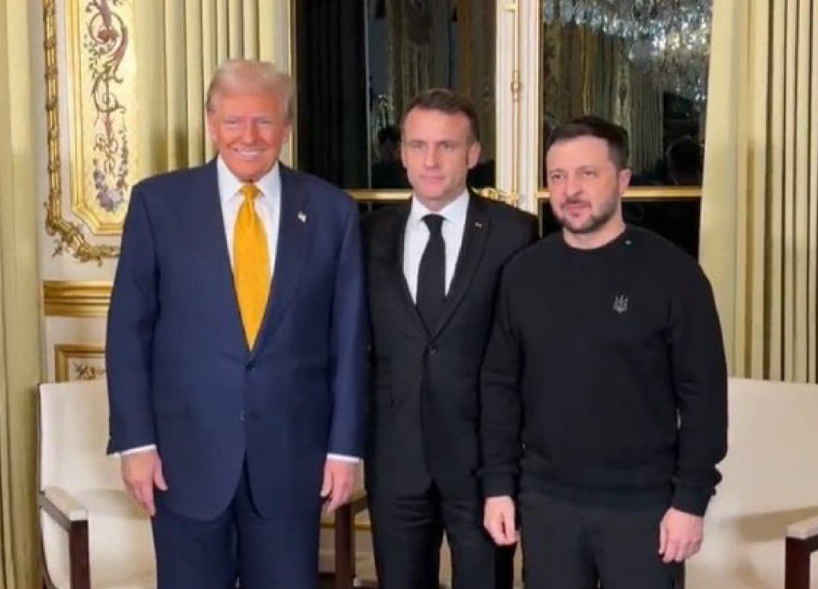
The conflict “cannot simply end with a piece of paper and a few signatures,” the Ukrainian leader has said.
Ukrainian leader Vladimir Zelensky has rejected a call by US President-elect Donald Trump for an immediate truce and peace talks between Ukraine and Russia.
Following a meeting between Trump, Zelensky, and French President Emmanuel Macron in Paris on Saturday, the president-elect issued a lengthy post on his Truth Social platform saying, “there should be an immediate ceasefire and negotiations should begin” to settle the Ukraine conflict. According to Trump, Ukraine “would like to make a deal and stop the madness.”
However, Zelensky made it clear that this is not the case in an even longer post published on X on Sunday, in which he said the conflict “cannot simply end with a piece of paper and a few signatures.”
“A ceasefire without guarantees can be reignited at any moment… To ensure that Ukrainians no longer suffer losses, we must guarantee the reliability of peace and not turn a blind eye to occupation,” the Ukrainian leader stated.
He stressed that “in the occupied territories of Ukraine, at least several million people remain,” once again ruling out the possibility of Kiev making any territorial concessions to Moscow in exchange for peace.
”It is precisely such peace through strength that we discuss with all our partners, as well as the steps and guarantees needed for the people and the state attacked by Russia,” Zelensky said.
Trump has repeatedly claimed that he could end the Ukraine conflict within a day of returning to the White House, and has criticized the outgoing US administration for spending too much on arming Kiev. According to earlier media reports, he may try to enforce a freeze of the conflict along the current battle lines, using US aid to Kiev as leverage.
Moscow has repeatedly said it considers a freeze of the conflict unacceptable. It has insisted that any settlement is only possible if Ukraine withdraws its forces from Russian territory, including the former Ukrainian regions, ensures the rights of its Russian-speaking population and adheres to neutrality.